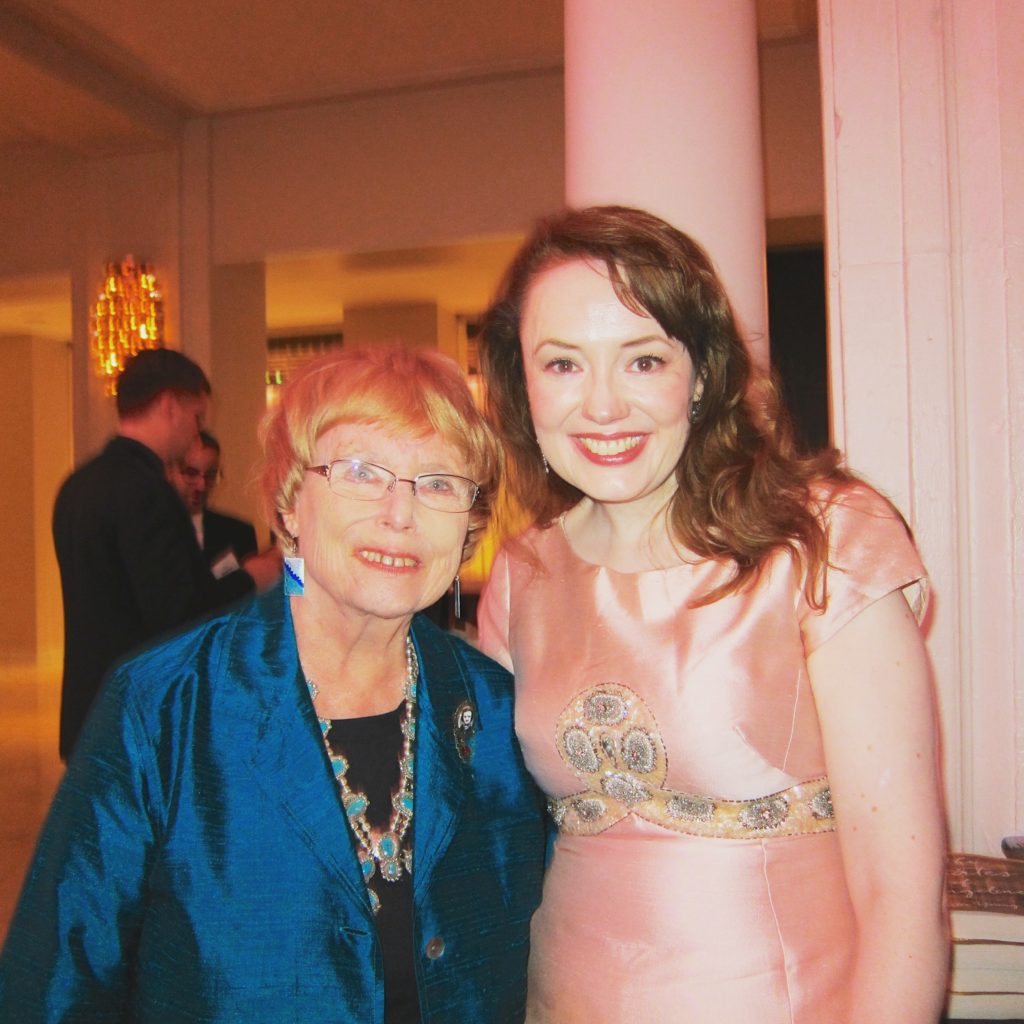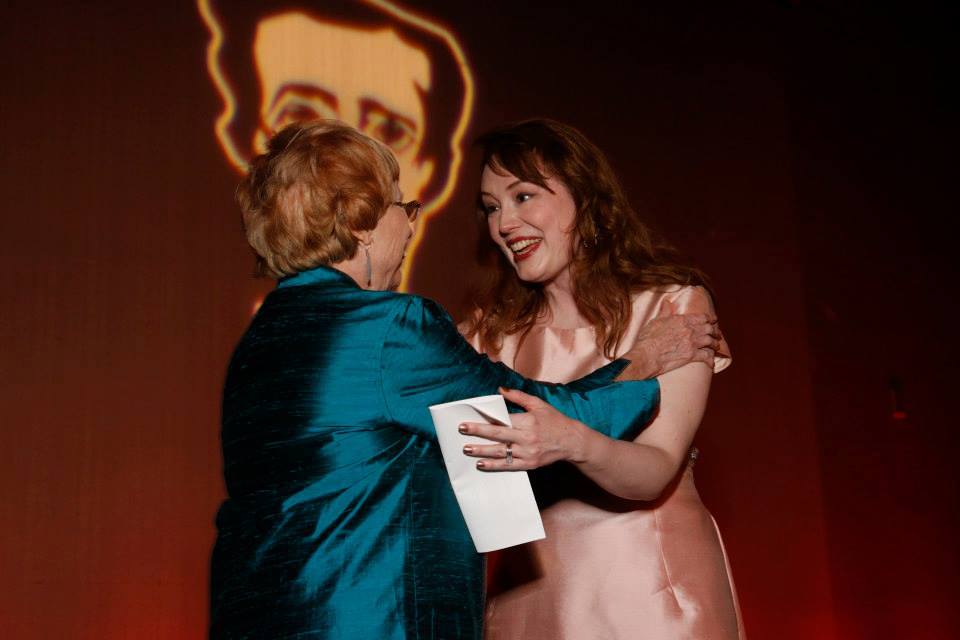Remembering Lois Duncan
Yesterday, Lois Duncan passed away. I didn’t know her well, but she was one of my writing heroes. At the 2015 Edgar Awards ceremony, I had the honor of introducing her when she received her Grand Master Award from the Mystery Writers of America. It wasn’t supposed to happen that way: her longtime agent was supposed to introduce her to the crowd at the Grand Hyatt’s ballroom, but he passed away two weeks before the ceremony. I was asked to step in because I’d spoken so passionately about Lois Duncan’s books when the the MWA’s national board discussed making her a Grand Master. I’d been surprised to find that some members of the board had never heard of her, because Lois Duncan’s thrilling, disturbing novels were such a big part of my life in elementary school and middle school.
Here’s an excerpt from my speech:
To call Lois Duncan a giant of the young adult genre would be an understatement. A giant of the genre might write some 50 books (many of them bestsellers), have her work translated into more than 20 languages, and win or be shortlisted for numerous awards along the way. All of that is certainly true in Lois Duncan’s case. But she hasn’t simply been successful in the young adult genre; she was one of the trailblazers who created a new category of YA literature. You don’t have to take the word of a rabid fangirl on this; no less of an authority than the New York Times just this month acknowledged Judy Blume, S.E. Hinton, and Lois Duncan as the three authors responsible for the rise of teenage-oriented publishing in the 1960s and 70s.
I suspect Lois Duncan had a particularly strong sense of what teenagers were interested in reading, because she was a teenager herself when she started writing professionally. She published her first story when she was 13 years old. By the time she was 16, she’d earned enough cash to buy herself a jeep. But if that sounds like the beginning of a charmed story, keep in mind that she was up against the censorship and strict moral code of the 1950s. Her first novel, Debutante Hill, was initially rejected because of a scene with a 19-year-old boy drinking a beer. (You can’t make this stuff up.)
Writing that introduction made me think about exactly why I’d connected so deeply with her work. There was a vein of darkness that ran through it, something pulsing and real. Her teenaged characters didn’t live sanitized Nancy Drew–like lives, solving mysteries between sock hops. They were flawed and struggling.
If there’s one thread that links all of Lois Duncan’s works, fiction and nonfiction alike, it’s the emotional honesty and intensity at their core. Whatever she writes — from Daughters of Eve’s view of sexism and violence or (my personal favorite) Stranger With My Face’s horror-infused vision of unbreakable family ties — Lois Duncan makes it feel real by grounding these stories in the raw vulnerability of teenagers’ lives. She understands the keen competition and fear of ostracism and the pressures on all sides. Her books stand up so well today because those things haven’t changed.
If you’d like to see the entire speech — and Lois Duncan’s own charming acceptance speech — you can watch it on YouTube:
As excited as I was to make that speech, that couldn’t compare to what happened afterwards, when Lois Duncan walked onstage and hugged me. It’s not every day that you learn one of your childhood idols is warm and witty, in addition to being brilliant. Rest in peace, Lois Duncan. And may your books live on forever.

